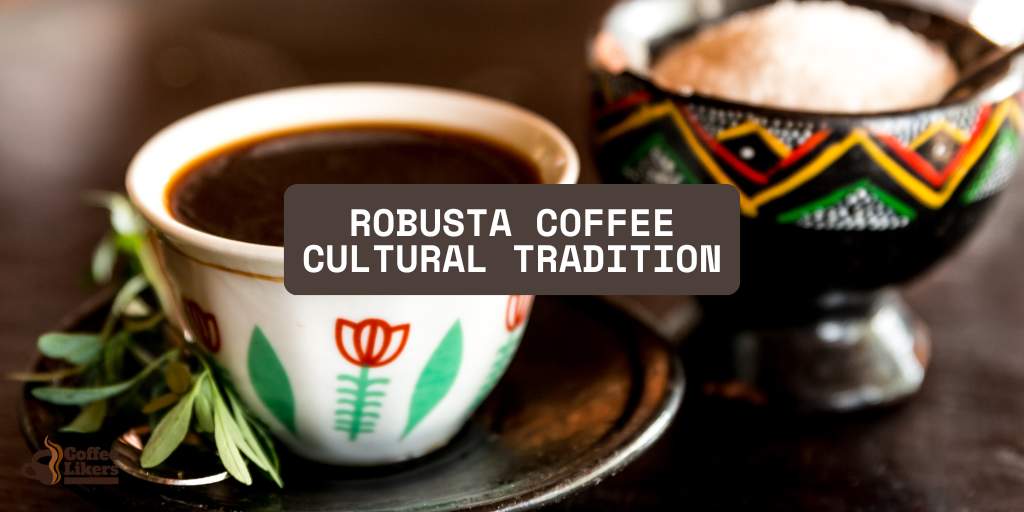Many people love starting their day with a delicious cup of coffee. Arabica beans are often the top choice for those who enjoy rich flavors. But do you know what sets the Arabica coffee plant apart?
It’s more than just a caffeine source. The journey of Arabica beans, from a tiny seed to your coffee mug, is very intriguing and amazing at the same time. In this blog, let us get to know more about is Arabica coffee the best.
Is Arabica coffee considered the best type of coffee? Many people who drink coffee believe that Arabica coffee is the best kind. They think this because it tastes and smells better, and is not as bitter. The name Arabica is known as a symbol of good quality in the coffee industry.
Is Arabica Coffee The Best: Brief Description
When we think about coffee, Arabica beans usually stand out. But why? Arabica beans are better in quality and have a gentler taste compared to Robusta beans.
People say they have a smooth and sweet flavor, with hints of chocolate, nuts, and fruit. This depends on where they come from and how they are roasted.
The taste plays a big role, but many other things make Arabica popular. These include sustainable farming practices and possible health benefits that come from drinking it.

Why Is Arabica Coffee Popular
Coffea arabica, also known as Arabica coffee, is very popular among coffee lovers worldwide.
There are a few reasons why people love it so much.
Firstly, Arabica beans have a smoother and less bitter taste compared to other types like Robusta.
This smooth taste makes it a great choice for different brewing methods and preferences.
Another reason for its popularity is the unique flavors found in Arabica beans. Depending on where they are grown, factors like altitude, soil, and processing methods can result in a wide range of flavors. These flavors can be fruity, floral, nutty, or chocolatey.
Lastly, Arabica coffee is often associated with ethical sourcing and sustainable farming practices. This connection makes it a top choice for consumers who are concerned about the environment and society.
The special attention given to growing these beans makes them even more attractive to coffee enthusiasts worldwide.
Benefits Of Arabica Coffee Beans
The Arabica coffee plant is not only delicious; it may also have some health benefits.
Studies suggest that drinking coffee in moderation, especially Arabica, can reduce the risk of certain diseases and improve cognitive functions.
Growing Arabica beans typically involves using environmentally friendly farming methods. Many Arabica farms are small family-owned businesses that prioritize organic practices, shade growth, and fair trade.

These approaches help preserve biodiversity, maintain soil health, and reduce the carbon footprint of coffee production.
By choosing Arabica coffee with Fair Trade, Organic, or Rainforest Alliance certifications, you are not only supporting a fair environment for coffee farmers but also contributing to the planet’s well-being.

Arabica Coffee Taste Characteristics
The taste of Arabica coffee is very rich and can change depending on where it is grown, how it is processed, and the level of roasting.
One main characteristic of Arabica coffee is its high acidity, which gives it a bright and tangy taste instead of a harsh bitterness like Robusta beans. Many people describe it as “crisp” or “lively.”
Arabica beans also have sweet and complex flavors. Depending on their origin and processing method.
You may taste hints of fruit like berries or citrus, as well as notes of chocolate, caramel, nuts, and even flowers. This mix of flavors is what makes Arabica a favorite among coffee lovers.
What Makes Arabica Coffee Special
Arabica coffee is different from other types of coffee because it has special qualities. The high quality of Arabica beans comes from the specific climate and altitude where they grow.
It also needs careful picking and processing. This attention to detail results in unique flavors and a smoother, richer taste compared to other coffee types.
Arabica beans have different characteristics that allow for many types of roasts, each with different flavor notes.

You can enjoy Arabica coffee on its own to highlight its unique qualities or mix it with other beans for a balanced and tasty cup. Arabica coffee provides a great coffee-drinking experience every time.
What Makes Arabica Coffee Different From Other Coffee Varieties?
While there are many kinds of coffee, Arabica and Robusta are the most popular in the world. Both of these come from the coffee plant, but they are different in important ways.
The biggest difference is in how they taste and how much caffeine they have. Robusta beans, also called Coffea canephora, have more caffeine. They taste stronger and are more bitter.
On the other hand, Arabica beans are known for their smooth and sweet flavor. Many people say they taste like fruit or flowers, which makes them unique.

The Unique Flavor Profile Of Arabica Coffee
Arabica coffee has many different flavors. This sets it apart from other types of coffee. Arabica beans can taste sweet and acidic.
The flavors can vary depending on where they come from, how they are processed, and how they are roasted.
When you drink Arabica coffee, you may notice flavors like chocolate, caramel, and nuts.
You might also taste citrus fruits, berries, and some subtle floral notes. The variety of flavors in Arabica coffee makes it a fun and exciting experience for your taste buds.

Comparing The Caffeine Content Of Arabica And Robusta Coffee
One key difference between Arabica and Robusta coffee is its caffeine content. Arabica beans have less caffeine, around 1.5%. In contrast, Robusta contains about 2.5% or more.
This lower caffeine content makes Arabica a good choice for people who are sensitive to caffeine.
It allows them to enjoy several cups of coffee without feeling jittery or raising their heart rate. On the other hand, those looking for a stronger caffeine boost may prefer Robusta coffee.
The Regions Where Arabica Coffee Is Grown And Its Impact On Flavor
The source of Arabica coffee beans is very important for their taste, similar to how wine shows its soil.
Different climates, heights, soil types, and ways of processing in each area bring out a range of flavors in Arabica coffee.

For example, coffee from South America, especially from Colombia and Costa Rica, is known for its balanced taste. It often has hints of chocolate, caramel, and nuts.
In contrast, coffee from the highlands of Ethiopia, where Arabica began, is usually brighter and fruitier. It has flowery scents and touches of citrus or berries.
Health Benefits Associated With Consuming Arabica Coffee
Drinking Arabica coffee in moderation can be good for your health. Studies suggest that coffee can help improve your memory and thinking skills, boost your metabolism, and reduce the risk of type 2 diabetes, Parkinson’s disease, and certain cancers.
Drinking too much coffee can lead to negative effects like feeling anxious, trouble sleeping, and heart palpitations.
Some research even suggests that coffee can aid in weight loss. Remember to eat a balanced diet and lead a healthy lifestyle for long-lasting benefits.

Sustainability Practices In Arabica Coffee Cultivation
As more people want Arabica coffee, it’s really important to use sustainable farming. Arabica plants can easily suffer from environmental stress. So, we need to use methods that reduce the harm coffee production does to the earth.
Many farmers are now using sustainable practices, like growing coffee plants in the shade. This helps protect nature and keeps various living things safe.
Also, certifications such as Rainforest Alliance and Fair Trade ensure good working conditions and fair pay for coffee farmers. This support helps make the coffee industry better for everyone involved.

Tips For Selecting High-Quality Arabica Coffee Beans
With so many types of Arabica coffee out there, picking the best beans can feel hard. But there are some simple tips you can follow to find better taste.
First, choose whole beans. They stay fresh longer than pre-ground coffee. Always check the roast date and pick beans that were roasted in the last few weeks for the
best flavor. Also, know where your beans come from. Different places have different flavors, and this knowledge can help you make a better choice.
Finally, don’t be afraid to ask your local roaster or barista for advice. They can share helpful tips about Arabica coffee production and guide you to beans that match your taste.
Brew Methods That Enhance The Flavors Of Arabica Coffee
The way you make your Arabica coffee can change how it tastes. Different brewing ways bring out different flavors and traits, making each cup special.
For example, pour-over methods like the Hario V60 or Chemex make clean and bright coffee. This is good for showing off the different flavors in light roasts and wet-processed Arabica beans.

On the other hand, a French press makes a richer, fuller coffee. It brings out more oils and gives a thicker texture to your mouth.
Exploring Different Roast Profiles For Arabica Coffee
The process of roasting coffee beans is crucial in determining the final taste of the coffee. When beans are roasted at different temperatures and durations, their natural sugars caramelize, creating unique flavors and aromas.
Whether you prefer light roasts that showcase the bean’s original flavors, medium roasts with a balance of chocolatey and nutty notes, or dark roasts with bold and smoky flavors, trying out different roast profiles lets coffee lovers appreciate the versatility of Arabica coffee.
| Roast Level | Flavor Profile | Acidity | Body |
| Light | Fruity, floral, and bright acidity | High | Light |
| Medium | Balanced with chocolatey and nutty hints | Medium | Medium |
| Dark | Bold, smoky, and bittersweet | Low | Full |
Pairing Food With Arabica Coffee For A Delightful Experience
Arabica coffee is great to enjoy with food because it has special qualities. The high quality and rich flavors of Arabica beans can make many meals taste even better.
Lighter roasts have a bright acidity and hints of floral or citrus flavors. They pair well with fruit desserts, pastries, and light breakfasts.
Medium and darker roasts have stronger flavors with hints of chocolate, caramel, or nuts. These go perfectly with richer desserts like chocolate cake or tiramisu.

How To Store Arabica Coffee Beans For Freshness And Flavor Preservation?
Once you have the right Arabica beans, it’s important to store them correctly to keep them fresh and tasty. To maintain their quality, it’s crucial to protect them from air, moisture, heat, and light.
Using an airtight container is the most effective way to store Arabica coffee beans. A dark container is even better as it prevents light from affecting the beans.
Keep the container in a cool, dark, and dry place to shield the beans from sunlight and heat. While some may suggest storing coffee in the fridge or freezer, this can introduce moisture and unwanted flavors that can spoil the beans.
FAQ About Is Arabica Coffee The Best
Why Is Arabica Coffee The Best?
Arabica plants grow well in high places. This helps them produce superior-quality beans. These beans have a complex flavor profile. When it comes to coffee production, Arabica beans offer a smoother, sweeter, and more aromatic taste compared to other types.
What Is The Highest Quality Coffee?
Jamaican Blue Mountain coffee often gets the label of “highest quality.” This is because it is made from Arabica beans. Many coffee experts consider it the best. These beans stand out for their smooth and balanced flavor. They are also rare, which makes them a sought-after specialty coffee.
Which Is Better, Colombian Or Arabica Coffee?
Colombian coffee is a kind of Arabica coffee. Colombia has the perfect conditions for growing coffee. This helps it produce some of the most loved Arabica beans in the world. Coffee enthusiasts enjoy its rich flavor profile.
Which Coffee Is Better, Arabica Or Robusta?
Choosing between Arabica and Robusta comes down to what you like. Arabica has a flavor that is less bitter and has higher acidity. Its taste is more complex. On the other hand, Robusta has a stronger and bolder flavor. It also has more caffeine content.
Final Thought
Is Arabica coffee the best? The Arabica coffee means, and it is often considered the best because of its smooth taste, rich flavors, and natural sweetness. It’s a favorite among coffee lovers and is widely used in high-quality blends.
However, the best coffee depends on personal preference. Some people enjoy the strong and bold flavor of Robusta coffee, while others prefer the delicate notes of Arabica.
Factors like brewing method, roast level, and freshness also affect how coffee tastes. In the end, the “best” coffee is the one that you enjoy the most. Thanks for visiting Coffee Likers.





Leave a Reply